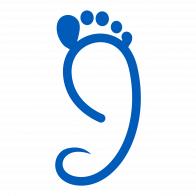Can I become a pilot with a disability?
Yes! Though there are a few exceptions and legal pitfalls to be aware of. Here is what we have learned that may help you decide what kind of pilot to become. If you have a disability, it is essential to know what kind of pilot you will be before starting training.
What kind of pilot?
There are two fundamentally different kinds: commercial and non-commercial. Of those, there are multiple subtypes.
For the non-commercial pilots, there are basically five types of licenses: Student, Glider (or sailplane), Sport, Recreational, Private. Each has different restrictions on age, health, disability accommodations, kinds of airplanes that can be flown, and where/how you can fly. Technically, Certified Flight Instructors (CFI) fall under this category, too.
Commercial pilots include, as you might have guessed, a Commercial Pilot License and Airline Transport Pilot. These will have the most health and disability accommodation restrictions, but they will also have the most privileges.
Ratings are a bit different. Think of them as an add-on to a license. The list can get rather large, so I will save that for another post. There are also multi-engine certificates, but let’s stick with the basics for now.
beware The medical
A pilot must pass a medical evaluation to earn any pilot license (or certificate, the terms are almost interchangeable). This is where most pilots with disabilities encounter the most trouble! Choosing the wrong Medical can create a severe headache of bureaucratic (read: expensive) red tape or deny the ability to ever fly by yourself.
The First Class Medical is the most restrive and reserved for pilots flying for airlines or similar operations. The Second Class Medical is for all other commercial pilots and is still quite restrictive. The Third Class Medical is for Recreational Pilots, Private Pilots, and Student Pilots training for either the Private or Recreational licenses. The FAA provides a good overview of these medical requirements on its website, including a list of disqualifying medical conditions.
Sport and Glider Pilots
Sport Pilots and Glider Pilots are not required to get any of the medicals mentioned above. Instead, Sport Pilots are required to have a valid driver’s license. Their driver’s license acts as a medical evaluation. For more details, AOPA has further reading on the Sport Pilot requirements. Glider Pilots don’t even need a driver’s license.
If you have a medical condition and decide to fly, make sure you do so safely. As the FAA says, “You should consult your private physician to determine whether you have a medical deficiency that would interfere with the safe performance of sport piloting duties. You may exercise sport pilot privileges provided you are in good health, your medical condition is under control, you adhere to your physician's recommended treatment, and you feel satisfied that you are able to conduct safe flight operations.”
There are also ways to transition from a Third Class Medical to Basic Med or even the Sport Pilot License.
The point is, if you have a disability and want to become a pilot, then there are options. We generally recommend that you speak with an experienced CFI to start. Preferably one who has trained Sport pilots before. From there, you can also speak with an Aviation Medical Examiner (AME) or sign up for programs like AOPA’s Pilot Protection Services.
Good luck, and fly safe!
Disclaimer: we at Rightfooted Foundation are not lawyers and nothing herein should be considered legal advice. Also, these things change with time. Go speak with someone who knows all the details and is up to date before taking any action.

